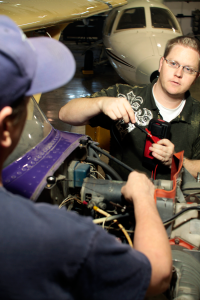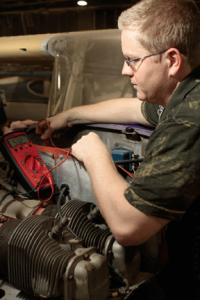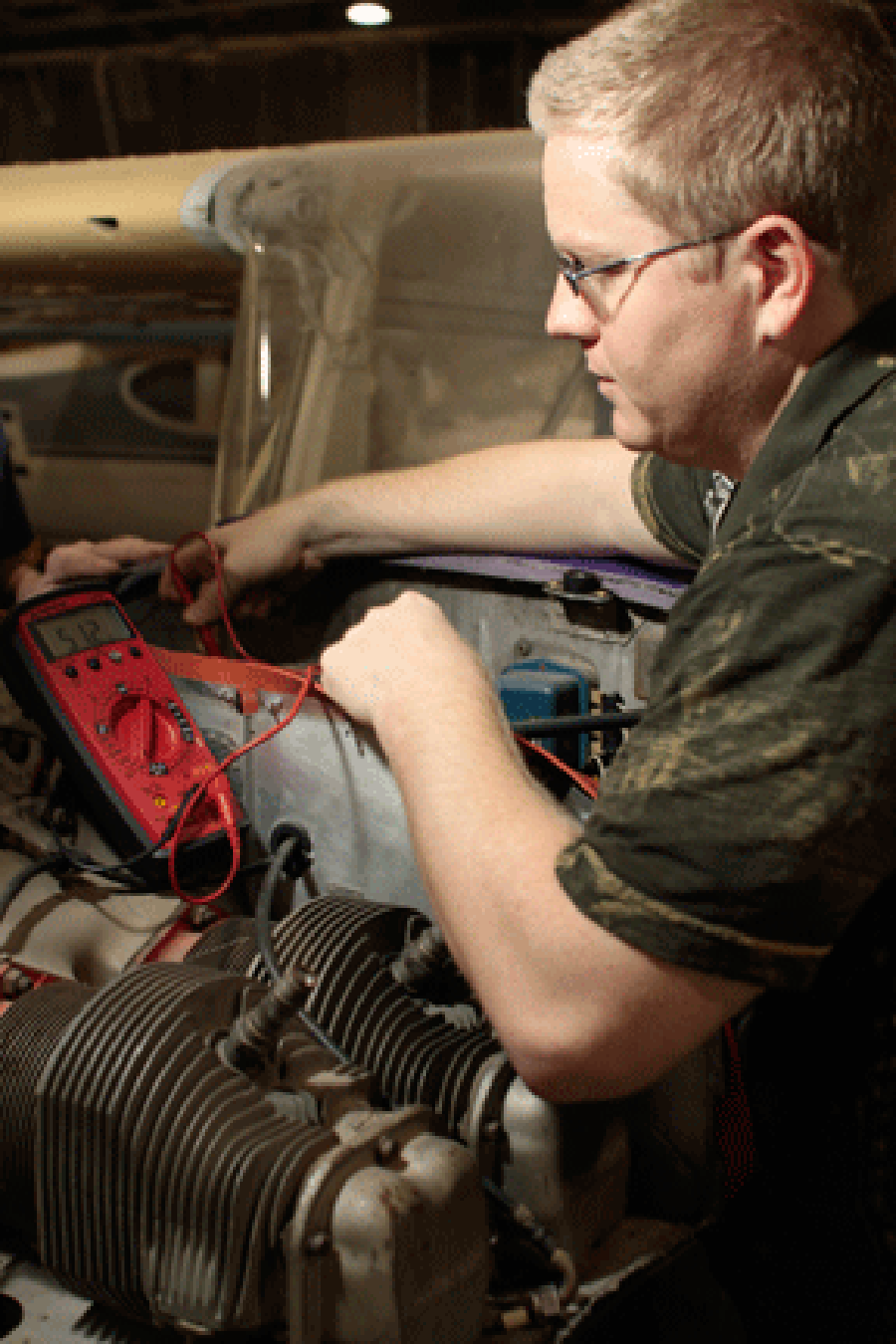By Bethany Peterson/nw news editor

Casey Holder/The Collegian
For the last 30 years, students have come to NW Campus to learn how to maintain airplanes. Soon, they will come to learn how to fly them.
Last semester, Chancellor Erma Johnson Hadley signed a memorandum of understanding with U.S. Aviation Academy, a flight school headquartered in Denton.
“It opens up the door for students to receive college credit and financial assistance,” said James Grant, assistant professor of aeronautics.
The financial aid is critical for students wanting to become professional pilots. On average, students at private flight schools pay more than $3,000 for their training, and they have no way to get financial aid or student loans.
“Banks don’t want to loan money to college students for flight school,” said Mike Sykes, CEO of U.S. Aviation.
TCC students will pay the regular rate for credit classes as well as an additional class fee for flight school classes just like students who take private music lessons. Students will not receive additional financial aid because they have extra class fees, but they can apply financial aid to their class fees, said Trina Smith-Patterson, director of financial aid. Banks will also grant student loans to students in the NW flight school since the flight school is a college program.

Casey Holder/The Collegian
A college degree is also important to getting hired as a pilot. Businesses that hire professional pilots want their employees to have at least an associate degree, and the majority are looking for a bachelor’s degree, Grant said.
“Really, there aren’t many schools in Texas that offer [flight training],” he said. “Students leave the area or the state for these services. We have been aware of it and are doing something about it.”
The closest colleges with flight schools are Baylor University in Waco and the University of Oklahoma.
The fact that there isn’t a college flight program in the area is surprising, Grant said, considering the area’s aviation importance.
Texas has more than four times the number of aviation jobs than the national average, according to the North Texas Aviation Education Initiation report by the North Central Texas Council of Governments.
The same report also said area flight schools will not turn out enough pilots to counter the retirement of current pilots, predicting a 40 percent shortage. Over the last few years, a “brain drain” has occurred in schools as flight instructors are hired as pilots to fill the demand.
Because of the great need for and the scarcity of pilots, the return for students could be well worth their investment. The average salary of an airline pilot is $70,608 a year, according to worldsalaries.org.
Students will leave TCC’s flight school with all the certifications they need to fly commercial or private airplanes.
The program will be introduced through continuing education classes first because they are easiest to organize, Grant said. Credit classes will follow soon after.
Grant said he hopes the continuing education classes will be open by summer.
“Credit, we’re shooting for sometime next academic year,” he said.
Continuing education students can apply for the Texas Public Education Grant.
“It is considered work force training, so students will be eligible for the TPEG,” said Susie Olmos-Soto, NW director of continuing education.
The maximum TPEG grant is usually about $300 a quarter or $1,200 a year, but additional funding can also come from outside businesses or organizations, Olmos-Soto said.
TCC chose to team with U.S. Aviation because of its reputation.
“They are a high-quality program in the area,” Grant said. “Why make it harder than it has to be?”
Sykes said U.S. Aviation’s good safety record and its status as a Federal Aviation Administration-approved school helped attract TCC.
“Of over 4,000 flight schools in the country, only about 600 are certified,” he said.
U.S. Aviation is also a large school.
“They are huge,” Grant said. “They have purchased flight schools around the state.”
This means U.S. Aviation is a stable and growing business, guaranteeing that TCC students won’t lose their money because the flight school closed, which has happened to several smaller schools, Sykes said.
Both TCC and U.S. Aviation predict a large interest in the program from the local population.
“It really opens up flight to students who otherwise wouldn’t have a shot at it,” Grant said.

